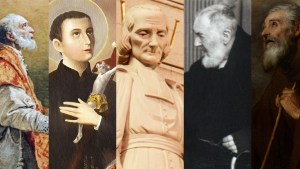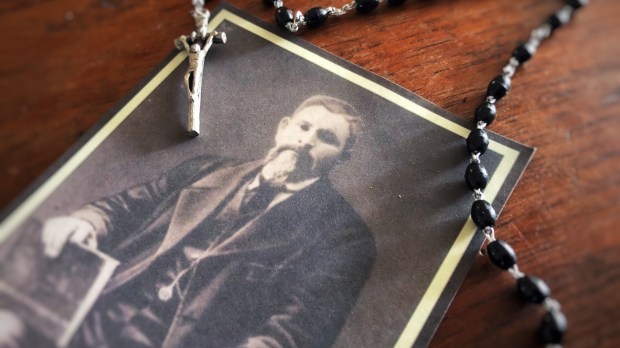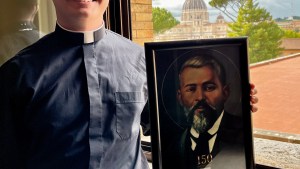St. José Isabel Flores is one of the 25 canonized Mexican martyrs from the Cristero War in Mexico. He was born in the state of Zacatecas on November 28, 1866. He studied in the seminary of Guadalajara and was ordained a priest in 1896. In 1900, he was sent to the town of Matatlán in the state of Jalisco, where he remained the spiritual father of this community for the next 26 years, until the end of his life. Here, both of my maternal grandparents were born: Manuel Orozco Navarro on June 17, 1921 (who was baptized by St. José), and Amparo Neri Jiménez on May 10, 1930.
Father José knew both of my grandparents’ families well and often visited them. My grandfather’s father was the deputy of Matatlán and helped St. José build the church in the town.
The Mexican government intensified its religious persecution in 1926-1927, and Fr. José knew what was coming. Regarding the images in the town church, he told his people, “Take the saints that are in the church because the ungodly ones will come and burn them, just leave the Sacred Heart, which will only be taken down by the ungodly ones …” Little did they know that this was exactly what would happen later on.
Fr. José was very close to my grandmother’s parents. My great uncle, Félix Neri Jiménez, recounts several extraordinary events that his father (and my great-grandfather), Ciriaco Neri Ramírez, experienced with the holy priest.
In one of his stories, he says that the priest went and asked Ciriaco if he could accompany him to go hear the confession of a dying widow. They headed out to the widow’s home, and, at the same time, unbeknownst to them, the widow’s eldest son was out looking for the priest to ask him to go to his home.
The priest then said, “Do not ask questions and take me to where your mother is.”
When Ciriaco and the priest arrived at the house, a family member asked them, “And my brother?” The priest said, “I do not know.” The family member said, “But he went looking for you.” The priest answered, “I have not seen him.” Then the question was asked: “Then, who told you to come?”
The priest then said, “Do not ask questions and take me to where your mother is.” The priest then heard the widow’s confession and, in the meantime, the eldest son returned home. He was very happy that the priest was able to go, and, when he tried to ask him about how he knew to go, the priest said, “Do not ask questions. Your mother is dying. Kneel, kiss her hand, and say goodbye.” The widow died shortly after.
It is clear that there was something special about St. José. However, because of the serious and ongoing religious persecution, he was eventually betrayed by a man he had been friends with since seminary. A band of policemen arrested him and took him to the nearby city of Zapotlanejo, where he was imprisoned for three days. Around 1 a.m. on June 21, 1927, he was taken to the cemetery to be killed. They tried to hang him several times from a tree but were not successful in their attempts.
Fr. José told them, “My sons, this is not how you are going to kill me. I will tell you how, but first I would like to tell you that if any of you have received any sacrament from me, do not stain your hands.”
One of the policemen said that Fr. José had baptized him and told the head policeman that he did not want anything to do with this murder. The head policeman then killed this man mercilessly. The rest of the policemen then formed into a firing squad, and Fr. José publicly forgave them. When they pulled the triggers, the guns did not fire. One of them finally beheaded the priest with a knife. They buried both the policeman they had killed and Fr. José there in the cemetery. It was June 21, 1927.
The people mourned him greatly and said that he was a saint because they believed the life he led was as holy as his martyrdom.
He is celebrated along with companion martyrs on May 21.
May we learn from his example and say with him: “If Christ died for me, I too gladly die for Him.”
Read another astonishing account of St. José below:



